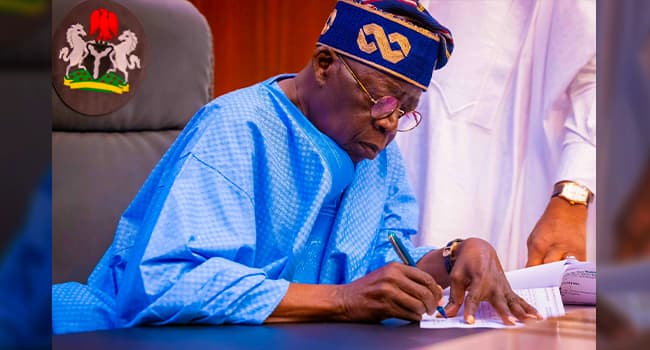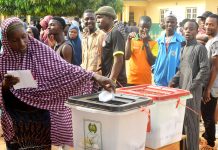President Bola Tinubu has outlined a stark choice for Nigerian drivers amidst escalating fuel prices: pay ₦1,000 per litre for Premium Motor Spirit (PMS) or opt for the cheaper alternative of Compressed Natural Gas (CNG) at ₦200 per Standard Cubic Metre (SCM).
This announcement was made during a meeting with top executives of the Nigerian Independent Petroleum Company (NIPCO) at the State House in Abuja.
The meeting, held on Tuesday, saw President Tinubu commend NIPCO’s investments in the CNG sector, especially its contribution to the Presidential Compressed Natural Gas Initiative (PCNGI).
Special Adviser on Information and Strategy, Bayo Onanuga, released a statement titled “President Tinubu Meets NIPCO Executives, Commends Investments in the CNG Sector.”
According to the statement, “Nigeria’s motorists can buy petrol at ₦1,000 per litre or switch to CNG, which costs just ₦200 per SCM. We’ve also introduced incentives for commercial drivers to convert their vehicles from petrol to gas, free of charge,”
He praised NIPCO’s role in driving Nigeria’s energy transition and promoting the adoption of CNG as an affordable and cleaner alternative fuel.
The President emphasised that public-private partnerships are critical to the success of this transition and highlighted NIPCO’s efforts in supporting the “Switch to CNG” campaign.
This campaign has not only raised public awareness but has also made affordable CNG conversion kits available, even ahead of the official launch of the Presidential CNG Initiative.
The statement further stated that ‘’ these efforts are in line with the administration’s energy security and economic diversification goals’’.
President Tinubu reiterated the government’s commitment to making energy solutions more affordable for Nigerians, noting that the shift to CNG would reduce the financial burden on motorists while promoting cleaner energy sources.
Reports have it that this initiative is seen as a key part of Nigeria’s broader strategy to address the nation’s energy challenges and reduce reliance on costly petrol imports.













